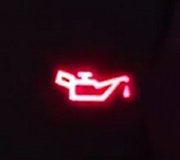Saturday, November 24th, 2007 AT 1:23 PM
Hi, my 1992 GMC Sierra K 1500, with a 5.7L 350, has 209,116 miles on it, this summer I decided to rebuild the motor because it was running rough, always had low oil pressure and would mis-fire in the winter. I pulled the engine, and took it apart down to the block. I cleaned the heads, put new bearings in and added a high volume oil pump. I put it all together and put in back in the truck. I put 10W-40 oil (a thicker oil, to give it more pressure) because it is a 4x4. It blew the gasket around my oil filter right off the engine so I shut it off and put another filter on. The filter was a STP S3980, then the second was a Fram PH3980. I was able to tune the values and put the value covers back on. I was able to drive the truck about 1,426 miles before I blew another filter gasket off the truck. Now I have put a total of 3,059 miles on the engine since the rebuild. I can not even start the truck without blowing an oil filter gasket right off. I asked around if anyone knew what to do and the GM troubleshooter said to check my lines running to the radiator from the oil pan. They were criss crosses and I switched them to the normal position. The the factory elbow that you screw the oil filter onto, I replaced. I thought maybe the threads were loose. I put on another filter started in up, this time with 5W-30 oil. I blew off a filter, this time a GM filter. So I crawled under changed it with another filter (GM also) and tightened it with 1/4 turn using oil filter pliers. I started it up and it blew another filter gasket. When you start the truck the gauges say the truck runs at 1000 rpm and the oil press is just above 60psi. Then you hear a pop and the pressure drops to 0psi. This happens in a matter of seconds, while in park. When I could still drive the truck, (just after the rebuild) the pressure would be way above 60psi and as the engine heated up it would drop down to 1 tick above 0psi. I an getting very frustrated with this, all in all I have put 34 oil filters on in 3months and gone though 142 quarts of oil ranging from 10W-40 to 10W30 to 5W-30. I bought a regular oil pump and I plan to replace that. What should I do?
